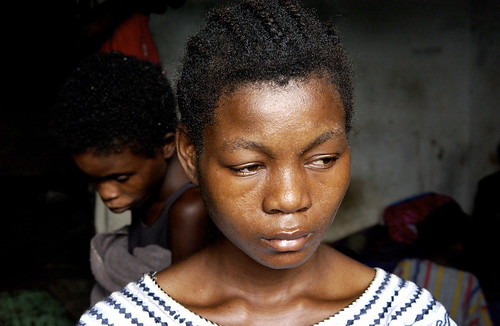Rape Still a Weapon in Liberia
This post is part of Cram Session, an ongoing weekly series from the Whitehead Journal of International Relations and Diplomacy. Each week a member of the Whitehead Journal will discuss the history and future of a wide variety of topics pertaining to International Relations.
The nation of Liberia has faced a tumultuous two decades as two civil wars, bloody government coups d’état and an upsoar of poverty has created a nation of survivors. As the current president Ellen Johnson Sirleaf works to rebuild the nation’s damaged social and economic infrastructure, it is difficult to overlook the atrocities that many Liberians faced at the hands of former President Charles Taylor and Master Sergeant Samuel Doe. However, as the nation struggles to move on the international community cannot overlook the psychosocial damage which to this day influences severe criminal acts within the population. One such of these acts include the use of rape as a weapon or tool in achieving an agenda–or as an uncontrollable response from years of routine.
Background
During the two bloody civil wars of 1989 and 1999 more than 250,000 people are estimated to have been killed. The survivor stories are gruesome; cases of torture, rape, forced-cannibalism, and child soldiers are indicative of the cruel nature of the wars. The regime of Charles Taylor and the National Patriotic Front of Liberia created an atmosphere of intense hostility and an environment where loyal forces were considered “untouchable” for such war crimes. However, the difficulty in identifying guilty parties of these acts is exacerbated by the stigma associated with rape for women and what is described by sociologists as a sort of “compulsion” of former soldiers to rape as a normal function of life.
Analysis
According to government figures at least 100 women are raped every month. This number does not take into account the psychological and social shame associated with seeking help and treatment for rape victims. In many instances men will divorce their wives if they are found to be raped. The shame associated with being raped forces many Liberian women to remain silent and refuse aid. International NGOs such as Medecines San Frontiers works within Liberia to provide free HIV testing and treatment to rape victims, but works against social stigmas and established norms to aid those in need.
Another NGO Amnesty International has identified rape as a tool of war to insight “fear, intimidation, humiliation, extracting information, rewarding soldiers, and ethnic cleansing.” Yet, as the strife of civil war is finished and the nation attempts to move into a democratic government and engaged civil society, the question is raised as to why rape is such a rampant weapon against women in Liberia.
As one teenage rape victim recounted, her attacker identified himself as an “untouchable” referencing the civil war days in which soldiers were held unaccountable for war crimes. This mentality became so routine for these soldiers (often children themselves at this time) that it has been psychologically accepted to them as forms of interaction with the public.
The issue of rape in Liberia has reached international proportions as the UN has recently launched an Anti-Rape task force and campaign to assess, identify those accountable, and effectively punish those responsible for rampant rape in the nation. A key factor in this initiative is changing the social norms of sexual violence to reflect the norms of the international community. The government of Liberia, the international community, and the UN all see the development of stricter anti-rape laws, administration, and implementation not only as a health and security measure for women but also critical to the development of the economic, social, and political sectors of the nations.
As President Sirleaf’s Truth and Reconciliation Commission works to amend the atrocities of the civil wars they must also take into account the compulsion of former soldiers and other perpetrators who have become desensitized against the severity of war rape. By changing the social stigmas of rape through education and awareness, an effective change may be created to protect and develop the role of Liberian women in society, economy, and political matters.
More Analysis
The American Psychological Association elaborates further on the active role of girls in militias, rebellion groups, and other military groups as domestic and sexual slaves throughout the world today. As this concern becomes an increasingly international concern, experts address the psychological damage that results from a life-time of sexual and physical abuse.
A recent article also elaborates on the state of conflict in Liberia and how a post-civil wars society must cope with years of sexual damage against men, women, and children. Essentially, ending the conflict was the easy part- eradicating the “culture of rape” is the hard part.
Photo Credit: United Nations Photo

